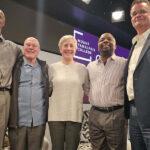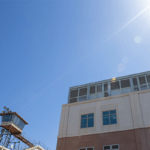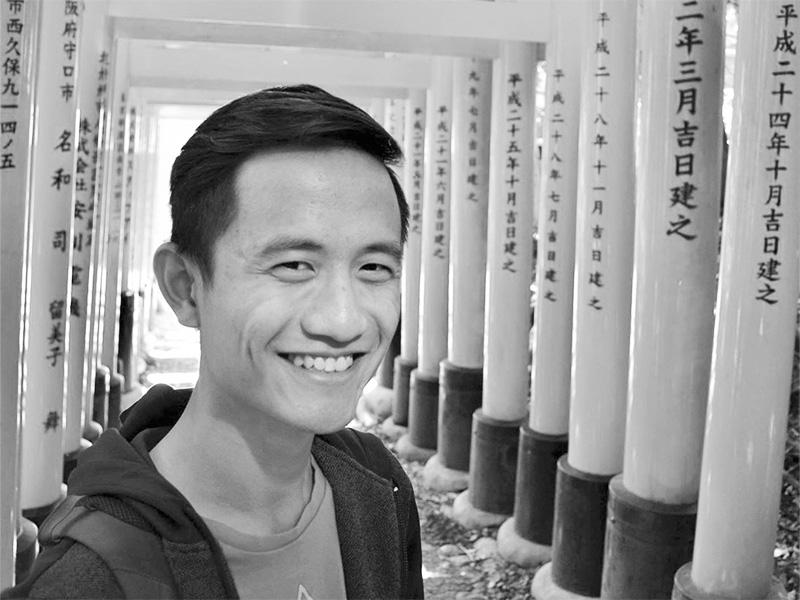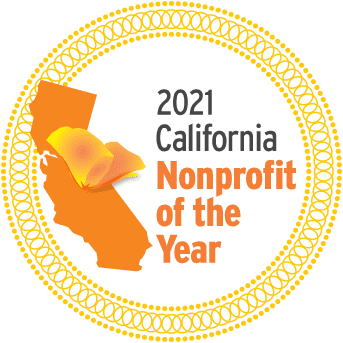I never knew the understated yet entirely raw power of voting until Super Tuesday, 2024.
At 44 years old, it was the first time in my life I’d ever cast a ballot, the first time I’d had any say in the governance of my country. Afterward, as I went about the rest of my day with an I Voted! sticker beaming from my chest, I felt like a fraud. Like a liar, laying claim to something of immense value that wasn’t really mine.
Before I tell you how I got to this point, I might as well address the proverbial elephant.
I’ve been to prison. Multiple times, in fact, most recently for second-degree robbery. But I’ve served multiple terms of incarceration, starting when I was 15 years old. I’ve hurt a lot of people, and I’ve done a lot of damage that I wish to God I could take back.
I weave no pitiful tales of woe, I tell no half-truths or outright fabrications to shield me from my actions. Make no mistake, it was nobody else’s fault. I did terrible things, both on and off drugs, for which I had to be held accountable—until I could learn to hold myself accountable.
Now, today, I write to share some of what I’ve learned the hard way, through the onerous process of facing and overcoming some of my own inner shit, and from my experience transforming trauma into purpose.
I was a Cold War kid, growing up in the 1980s, being taught to duck-and-cover in the classroom, to hate Communists and fear the atom bomb.
But in all the years since the Soviet Union crumbled, I’ve never been anything but a political spectator, the ubiquitous heckler in the stands. I knew who I liked and who I didn’t, and I parroted a lot of critical opinions built almost exclusively on ignorance. But I never read past the headlines, I had no real views of my own, and didn’t care enough to invest any energy in changing that status quo.
In truth, civic apathy was among the lesser of my character defects, as my godparents can attest. I’ve never known more honest, loving people. Some years ago, they took me in when I had nothing, when I had no home and no hope. They fed me, clothed me, loved me like their own. And in return, I lied to them, stole from them and my god-brother, and betrayed their love and trust on every level.
Somehow, although their trust was battered beyond recognition, their love for me remained undiminished. I never knew love like that before, and it sparked within me a motivation to change, to examine the ugliest parts of myself and start dealing with some of the unresolved bullshit I’ve been packing around all my life.
My godmother is a woman of kindness and compassion. Every fiber of her being is stitched and woven from love, pure and true. It’s the core of her existence, her most defining characteristic.
But my godfather’s brand of love is an amalgam, interwoven with other values like moderation, integrity, and responsibility. Head of his household, provider and protector, a linear thinker with a rational mind—when I consider the man I want to be, the man I strive to be, it’s his image I hope to see in my mirror one day.
My godfather takes voting very seriously, and with good reason. He and my godmom came from nothing, moving to California from New York after his discharge from the Army Reserves. He served as a Vietnam-era radio operator, following in the footsteps of his dad, a WWII veteran who helped retake the Philippines from Japan.
My godfather went on to build a career as a field engineer for Kodak, Versatec, and Xerox. Now retired, he continues to serve his country as a poll worker, showing up at six in the morning to pull a 15-hour tour on election day. Voting, he says, is the quintessential expression of American freedom, and a fundamental, foundational American right.
To drop a ballot and have your voice counted—there is no greater privilege or duty in a democratic republic like ours.
It took far too long, but in the painful process of personal change, I eventually learned two profound lessons which go hand-in-hand: how important it is to care about one’s community, and that caring means nothing in the absence of action.
My ballot came in the mail along with a voter’s guide that I perused and discarded. I didn’t want someone else’s summaries, I wanted to get my information straight from the horses’ mouths.
I don’t know how much time I spent online doing research. I checked out the candidates’ websites, YouTube’d speeches and interviews, and tried to get a feel for each one’s stance on the issues that are important to me. I called my godparents and got a feel for how their views and values shaped their preferences for one candidate over another.
Holding my ballot in my hand, I felt the weight and texture of the paper, and imagined the wealth and value contained in it when I picked up my pen and filled in my little bubbles. I wanted to treat my vote like it was something tangible, something made of gold: I wanted it to go to the candidate that had earned it.
On the morning of Super Tuesday, I looked up the nearest polling place and got my walking shoes laced up. But I felt a vague, unnamable discomfort at the thought of showing up in person. Reflecting on it later, I came to understand I still feel out of place in the world, like an unwelcome trespasser in the Land of the Free. As if maybe I shouldn’t have this powerful, profound instrument, as if holding the vote in my hand should burn.
Though still out of reach for those in prison, the right to vote was only recently restored to people on parole. It was a voter initiative that my godparents heartily supported. Running my fingers over the envelope, I knew that wasn’t something I was willing to let pass through my fingers.
I stepped out my front door and turned to walk up the street, but in the opposite direction from the polling place. In front of a grocery store in my neighborhood, I dropped my mail-in ballot in a big blue USPS mailbox. Then I pulled out my I Voted! sticker, stuck it to my chest, and took a selfie.
Down deep, I still felt like an imposter. Like a fraud. Nonetheless, I did it—I voted.
Come November, I’m going to vote again. This time, in person. In fact, I’m going to follow my godfather’s suggestion and volunteer to be a poll worker. I don’t know if they’ll have me, but I’m going to try.
There have been times since my release that I have felt devastated and powerless. Not by anything that I have been experiencing personally, but by the stark contrast of the world before I went to prison, and the world that I have come back into.
It’s not the same world.
Being dependent on public transit, my bike, and these two feet for transportation, I have come across a number of heart-rending homeless encampments. Tent cities have sprung up like mushrooms in a rainforest. They are everywhere now, where once they seemed scarce and scattered.
So many people are hungry and wanting, so much hope has been lost in America. I realize I have to be part of the solution now—starting with my vote.
The United States of America isn’t in Washington, DC, or some fabled “heartland.” It’s everywhere, right in front of and all around us. We seem to have forgotten that, or perhaps never learned. It’s something that I needed to be reminded of.
So I’ve gotten into the habit of taking action: Picking up trash in my neighborhood, volunteering at a food bank near my house. Come to find out, there is incredible strength in selflessness, in giving even when we ourselves are in need.
Down here at the ground level, this is where I’ve come to know my country best.
Andrew Hardy spent several years as senior layout designer for the award-winning San Quentin News, eventually becoming managing editor of Wall City Magazine, and reporting on issues of social and criminal justice. He is currently editor of the San Francisco International Arts Festival’s newsletter and is interning with California Lawyers for the Arts while continuing to write as a freelancer.
Attributions: This article originally appeared in Street Spirit. April 2, 2024.












